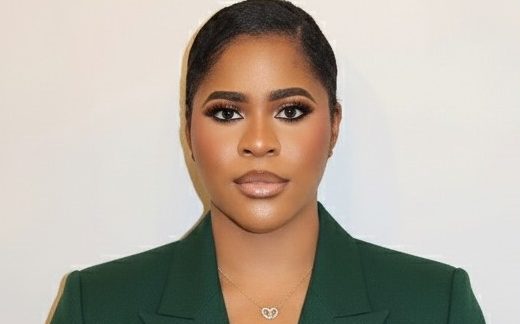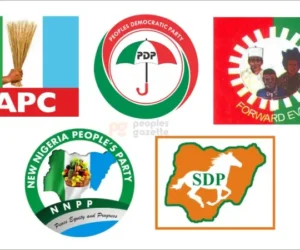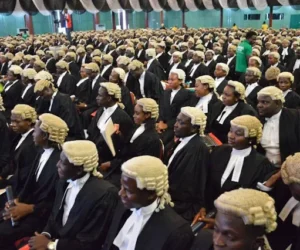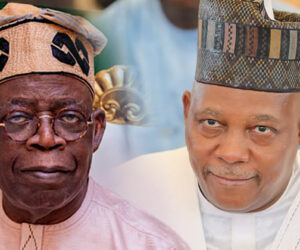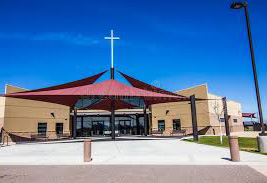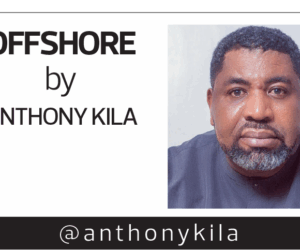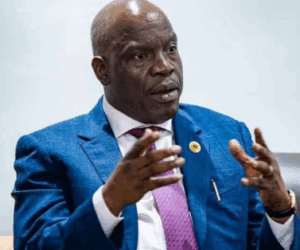1
When I think about my journey, I always come back to one simple memory: the sound of a generator in my hometown in Enugu. That sound meant light. It meant that for a few short hours, children could do their homework, families could talk, and the night didn’t have to end in darkness. I didn’t know it then, but that small moment would later become a symbol for everything I do now. It became a quiet metaphor for what I now see as the work of climate justice: creating lasting power where there has been too little, and ensuring that access to light, water, and dignity is not a privilege but a right.
I grew up in a home where we never had to worry about electricity or clean water, and I thank God for that grace. But that comfort also opened my eyes. Just beyond our compound, I saw children studying by lanterns, women waking before dawn to fetch water, and families negotiating with pollution as if clean energy was only for the rich. That was when I realized that privilege doesn’t have to make you blind; it can make you more aware. Climate and energy justice became personal, not because I lived in deprivation, but because I witnessed it up close and could not ignore it.
As I grew older and stepped into policy spaces, from working with the UNFCCC and YOUNGO Energy group to serving as an Energy Policy Analyst in Canada, I saw another kind of divide. Decisions about Africa were being made without Africa. Our stories were often footnotes in reports. The women who live the reality of climate change every day, the ones rebuilding after floods or rationing water through droughts, were nowhere in the rooms where solutions were being written. That was when I understood that my purpose was born in the space between comfort and conscience. My voice became a responsibility, not to speak for people, but to make sure others can speak for themselves.
Over time, my idea of leadership has evolved. It used to be about being the first or the only one in the room. Now, it is about service. It is about turning that room into a revolving door so others can walk through too. Leadership means showing up prepared, even when nobody is clapping. Balancing my PhD, policy work, and the expectations that come with visibility can be a lot. But every paper I write and every policy I shape has to come back to one thing: will this help the communities whose names we never mention?
African women bring something extraordinary to the fight for climate resilience. We carry a kind of wisdom that is rarely recorded but deeply needed. We understand climate change not through charts or data, but through lived reality: crops that fail, rivers that rise, homes rebuilt over and over again. We lead with quiet strength, holding families and communities together through crisis. That is intelligence too, survival intelligence. But the world often refuses to value it because it does not sound technical enough. We are still underrepresented and underfunded. Sometimes, we have to prove our expertise twice just to be heard once. Yet, despite that, we keep leading with heart, with purpose, with persistence.
That belief drives everything I build. To Support Young Kids Foundation exists because no child should be limited by where they were born. Aderayah Academy, our solar-powered tuition-free school in Enugu, was born out of the dream that rural children deserve classrooms powered by the same clean energy driving global cities. The Summer Okibe Prize for the best female law graduate at Chukwuemeka Odumegwu Ojukwu University reminds women that brilliance deserves more than applause; it deserves investment. These are not acts of charity; they are bridges built so others can cross where the road once ended.
Still, behind every title and project, I am just a woman learning balance. I stay grounded by remembering who I am without the titles. Before the degrees and conferences, there was just a girl who knew that everything she has comes from grace. My faith keeps me centered, and my community keeps me honest. Sometimes that community looks like the widows I have supported or the young people I mentor, over ten thousand now. They remind me that impact is not about scale, it is about sincerity.
Resilience is not about pretending to have it all together. It is about being honest when things feel heavy and finding joy again in small ways like dancing in my kitchen, watching a movie, or laughing with family. Those moments remind me why this work matters: not for recognition, but for restoration of people, of dignity, of hope.
If I could speak to young African women who want to lead, I would tell them this: do not shrink yourself to fit into rooms that were not built for you. Do not lower your voice just to make others comfortable. If the door will not open, build another. Your lived experiences are not weakness; they are wisdom. Your identity is not a limitation; it is proof that you have survived.
Being an African woman leading in climate resilience is not just work. It is faith, courage, and the belief that light can return even after years of darkness. The work can be slow, but it is always worth it, because every child studying under solar light and every woman who no longer wakes at 5 a.m. for water is proof that progress is possible.
I began this journey with the sound of a generator lighting up the night, and that image still guides me. Because when one woman finds her light, she does not just illuminate her own path; she lights the way for a generation to follow.

